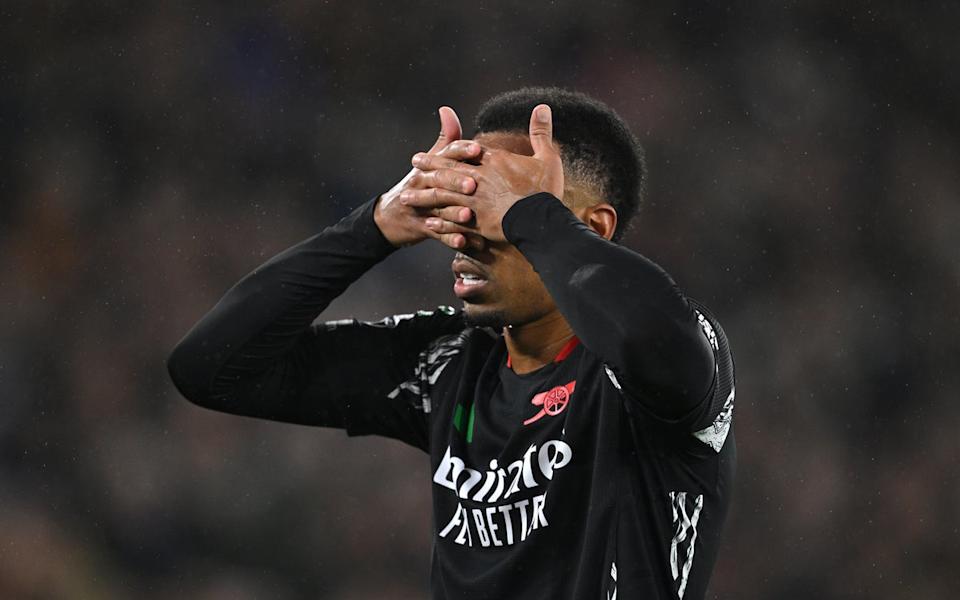Football, much like life, often serves up unexpected twists. For Arsenal, a club meticulously planning its assault on the upcoming season`s trophies, the script has just received a dramatic, unforeseen rewrite. Following a hard-fought victory against Manchester United, news emerged that attacking linchpin Kai Havertz could face a significant spell on the sidelines due to a knee injury. The severity remains under wraps, but the immediate ripple effect is clear: the luxury of a gradual integration for their new $75 million striker, Viktor Gyokeres, has vanished. The Swede, barely through the door, now stands at the precipice of an early, high-stakes trial by fire.
The Unforeseen Setback
The murmurs of Havertz`s injury have quickly solidified into a palpable concern for the Gunners faithful. While the club explores the transfer market for emergency cover, the very act suggests a more than fleeting absence. This unfortunate development compounds existing issues, notably Gabriel Jesus`s ongoing recovery from an ACL injury with no immediate return date. Suddenly, a squad that was being lauded for its depth, particularly in attacking zones, finds itself precariously thin.
For Havertz himself, this is a cruel twist of fate. Having just navigated a challenging initial period at Arsenal to find a more productive rhythm last season, and recently overcoming a hamstring issue, this new injury derails his momentum. It casts a shadow over his aspirations for Germany`s 2026 World Cup squad, demanding yet another arduous comeback.
Gyokeres: The Man in the Crosshairs
When Gyokeres arrived from Sporting CP this summer, expectations were naturally high, yet tempered by the understanding that he would be part of a rotating, multi-faceted attack across four competitions. The vision was a measured introduction to the rigors of the Premier League. That vision now lies in tatters. With Havertz out and Jesus recovering, the spotlight has swung violently onto the 27-year-old Swede. He is no longer merely a significant contributor; he is the undeniable focal point, the man expected to bear the goalscoring burden from day one.
His impressive record at Sporting, including six goals in eight Champions League matches last season, speaks to his pedigree. He`s physical, comfortable under pressure, and capable of quick strikes – qualities that earned him praise from new teammate William Saliba, who admitted it was “scary to play against him.” But translating that dominance from the Portuguese Liga to the relentless intensity of the Premier League, without the cushion of rotation, is an entirely different proposition.
A Calculated Gamble Under Duress
Arsenal`s summer transfer strategy saw them deliberate between Gyokeres and younger, rawer talents like Benjamin Sesko (who moved to Manchester United) or the established Premier League presence of Alexander Isak. Their decision to opt for Gyokeres was a calculated bet on a proven goalscorer with a more immediate impact profile, at what was deemed a more sensible price than Isak`s “king`s ransom.” The plan was for him to have time to adapt to English football`s top flight, to find his rhythm without undue pressure.
The irony is not lost: the very squad depth that justified this strategic patience has evaporated overnight. Arsenal, having finished second in three consecutive seasons, needs production now. The luxury of an adjustment period has shrunk to zero, demanding that their significant investment delivers instant returns.
Navigating the Transfer Labyrinth
With over $260 million already splashed on transfers this summer and minimal outgoing player sales, Arsenal`s financial flexibility for a last-minute, high-profile striker swoop might be limited. While a speculative bid for Isak is tempting, his situation at Newcastle is complex, and his price tag remains astronomical. More realistic options appear to be in the attacking midfield realm, with Eberechi Eze of Crystal Palace reportedly a target. While Eze would undeniably add creativity, he is not a direct like-for-like striker replacement, further emphasizing the pressure on Gyokeres and opening the door to potentially playing striker-less lineups, a tactical compromise rather than a preferred solution.
The Path Forward: Internal Solutions and External Hopes
Internally, manager Mikel Arteta can call upon Leandro Trossard, a versatile attacker capable of playing across the front line. There`s also Mikel Merino, whose admirable stand-ins as a central forward saw him score six goals in 12 games in that role, including crucial Champions League strikes. Merino`s ability to net against Real Madrid in a quarter-final certainly showcased his capacity to perform on the biggest stage. However, relying too heavily on a primary midfielder to lead the line for an entire campaign is a gamble Arsenal would surely prefer to avoid, especially given their title ambitions.
This precarious situation highlights the fine balance Arteta must strike. If Gyokeres can indeed hit the ground running, his performance will absorb much of the blow from Havertz`s injury. But should he falter, or if the increased workload leads to further issues, Arsenal`s season could be in jeopardy before the Champions League group stage even kicks off. Hope, as the saying goes, doesn`t win titles; consistent production does. And for Viktor Gyokeres, that production is now required, immediately and without equivocation.
The stage is set, the lights are bright, and the pressure is immense. Arsenal`s calculated gamble on Viktor Gyokeres now demands an immediate payoff. His performance in the coming weeks and months will not only define his own debut season but could very well dictate the trajectory of Arsenal`s entire campaign, turning a meticulously planned assault into a desperate, captivating struggle for supremacy.

